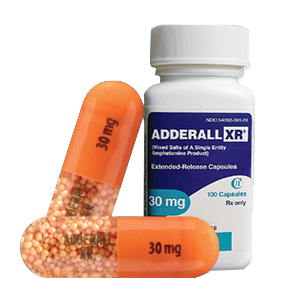Description
Buy Amphetamine Online: Uses, Benefits, and Risks
Amphetamine is a powerful central nervous system stimulant that enhances focus, energy, and cognitive function. It is primarily prescribed for Attention Deficit Hyperactivity Disorder (ADHD) but has also been used to treat narcolepsy, depression, and obesity.
What is Amphetamine?
Amphetamine works by increasing the activity of neurotransmitters like dopamine and norepinephrine in the brain, improving attention, alertness, and impulse control.
Medical Uses of Amphetamine
1. ADHD Treatment
-
Reduces hyperactivity, impulsivity, and improves concentration.
-
Studies show long-term use can normalize brain structure in ADHD patients.
-
Effective for both children and adults.
2. Depression (Off-Label Use)
-
Used alongside antidepressants for treatment-resistant depression.
-
Improves energy, mood, and motivation.
3. Narcolepsy (Historically Used)
-
Helps manage excessive daytime sleepiness and sudden sleep attacks.
Potential Side Effects
While beneficial when used as prescribed, amphetamine can cause side effects:
Physical Side Effects
-
Increased or decreased blood pressure
-
Rapid heart rate
-
Dry mouth, teeth grinding
-
Loss of appetite, weight loss
-
Insomnia
Psychological Side Effects
-
Anxiety, irritability
-
Mood swings
-
Obsessive behaviors
Why Buy Amphetamine Online?
Purchasing from a trusted pharmacy ensures:
✅ High-quality medication
✅ Discreet and secure delivery
✅ Prescription-based options
Where to Buy Amphetamine Safely?
For genuine and effective amphetamine, check out these trusted sources:
🔗 Buy Amphetamine Online
Explore Related Medications
-
Adderall 30mg – Popular ADHD treatment
-
Dexedrine 25mg – Another effective stimulant
-
Modafinil 200mg – For wakefulness and focus
-
Ritalin 20mg – Methylphenidate-based ADHD medication
Final Thoughts
Amphetamine is a highly effective medication for ADHD and certain cases of depression. However, it must be used under medical supervision to avoid misuse or dependency.
Order now from a trusted source and experience the benefits of regulated, high-quality amphetamine!
🔗 Shop Amphetamine & Related Medications Here
Disclaimer: This blog is for informational purposes only. Always consult a healthcare provider before starting any medication. Use prescription drugs responsibly.









Reviews
There are no reviews yet.